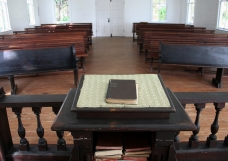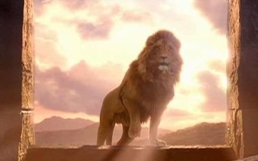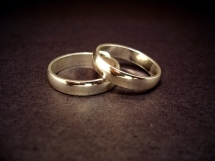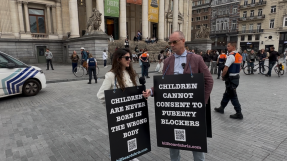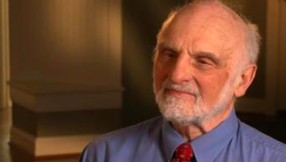
Jesus said to his disciples: "I tell you the truth, it is hard for a rich man to enter the kind of heaven. Again I tell you, it is easier for a camel to go through the eye of a needle than for a rich man to enter the kingdom of God" (Matthew 19:23-24).
But what did he mean?
There are at least three possible interpretations.
1. The one Sunday school children are often taught is this: there were small gates by the side of the large main gates in city walls which were just used for foot traffic. These gates were called "the eye of the needle". Camels are huge animals and it would be difficult or impossible for one to get through unless it was a very small camel.
The trouble with this is that there's little if any evidence that these small gates were ever called "the eye of the needle".
2. It's a mistake in the manuscripts. The Greek word for camel is kamelos, but there is another word, quite like it, kamilos. This is the word for a ship's cable or hawser. When the two words were spoken they would sound very similar. So Jesus might have been saying that for a rich person to get into the kingdom of heaven was like trying to thread a needle with a rope. Or perhaps the needle was a carpet-maker's large needle and the thread was made of camel-hair.
The trouble with this one is that there's little if any evidence in the manuscripts that this mistake happened.
3. Jesus meant exactly what he said. He was using an absurd illustration to show just how difficult wealth makes it to focus on God. In fact, elsewhere in Jewish literature, the same sort of thing is said: the Babylonian Talmud (compiled in the 3rd-5th centuries AD) describes an impossible thing as like "an elephant going through the eye of a needle".
It's interesting that people have tried to soften or smooth out Jesus' teaching. Maybe a camel could get through a small gate in a city wall if it was a very small camel and you unloaded it first. So perhaps if a rich person wasn't very rich, or if they gave a lot of their possessions away, they'd be alright.
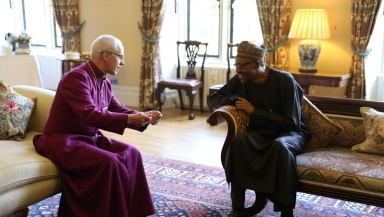
But that's not what Jesus said.
Maybe if the needle were very large and the rope very small – perhaps only a bit bigger than a thread – you could just about get it through the needle's eye.
But that's not what Jesus said.
The context of his saying (and a text without a context is a pretext, remember) is that he's told a rich young man to sell everything he has and give it to the poor, and to come and follow him.
Does this mean that everyone has to do the same? No. But everyone who really wants to follow Jesus should be prepared to hold their possessions so lightly that they can lose them or give them away for Jesus without worrying about it, and even with joy.
The rich young man couldn't. He didn't hold his possessions, his possessions held him.
Dr Samuel Johnson, the great 18th writer and moralist, once toured a luxurious castle and estate. He remarked grimly afterwards: "These are the things which make it difficult to die."
Holding on to stuff makes it difficult to die, but it makes it difficult to live, too. There's nothing wrong with enjoying what we have. But acquiring more and more possessions and money for the sake of it ensnares us in a system of values that has nothing to do with Jesus. We need to be willing to let it go. And if we find that really hard – as hard as getting a camel through the eye of a needle – we know what we need to pray for, and we know what we need to do.
Follow @RevMarkWoods on Twitter.










